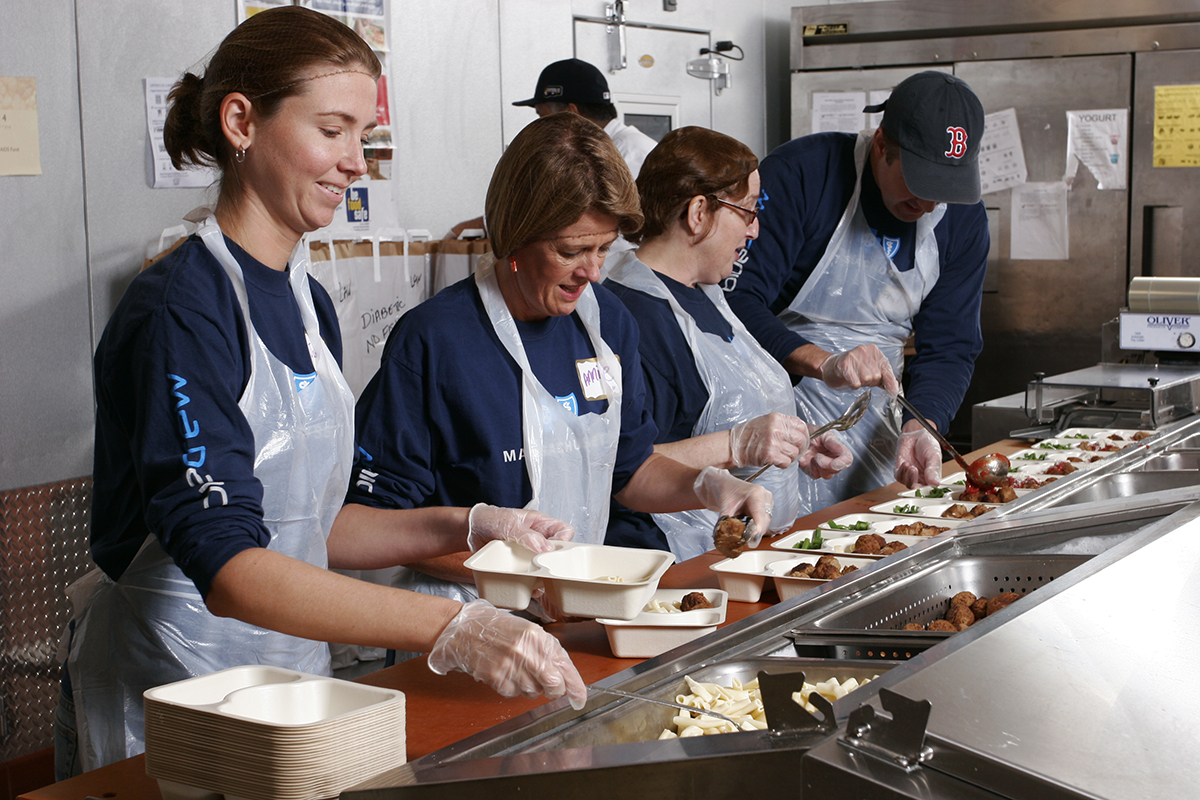Community Servings Delivers Medically Tailored Meals to Chronically Ill Patients
Following a weight-loss diet is hard enough. Now imagine your doctor has told you that you need to figure out how to manage potassium and glucose levels in your food—all while battling through the exhaustion of chemo treatments.
That’s a reality many chronically ill people must face, but a Jamaica Plain organization called Community Servings is trying to ease their burden. For 25 years, Community Servings has been delivering homemade meals that meet a patient’s exact medical needs to his or her home, all free of charge. Today, the group feeds 1,000 people a day in 20 cities across the state.
“You could be a lactose-intolerant diabetic who also has kidney disease, and we could still bring you a meal,” says CEO David Waters, adding that the organization offers 15 different diets, ranging from diabetic to low vitamin K, that can be combined and altered as needed. “So it’s very much like a prescription, where the food you’re ingesting is in total alignment with what your doctor needs you to be eating.”
Unlike some similar organizations, which deliver meals mainly for the sake of ease and convenience, Community Servings is anchored by its belief that food is medicine, and that eating the right things can make an impact on treatment.
To prove it, the group just launched a study in conjunction with Massachusetts General Hospital that will track the progress of diabetic patients following a Community Servings diet tailored to their needs. Results are expected in January, but Waters says existing research has already shown that malnourished patients—in other words, the fate Community Servings is trying to make sure its patients avoid—have longer and more expensive hospital stays.
“We believe that what we’re doing is really a piece of healthcare reform,” Waters says. “We are trying to convince policy leaders that medically tailored meals delivered in the home is a smart intervention to improve outcomes, but also to prevent rehospitalizations.”
Community Servings meals do that not only by providing necessary nutrition, Waters says, but also by offering culturally appropriate and carefully prepared food that encourages even those with low appetites to eat well.
“If we bring them institutional food—what I call my high school cafeteria food—they’re not going to eat it,” Waters says. “If we can bring you the meal your grandmother made when you were a child, you’re more likely to eat it because it’s familiar to you. In addition to those medical nutrients, it’s also bringing you a sense of safety and solace by virtue of evoking food memories from your childhood.”


